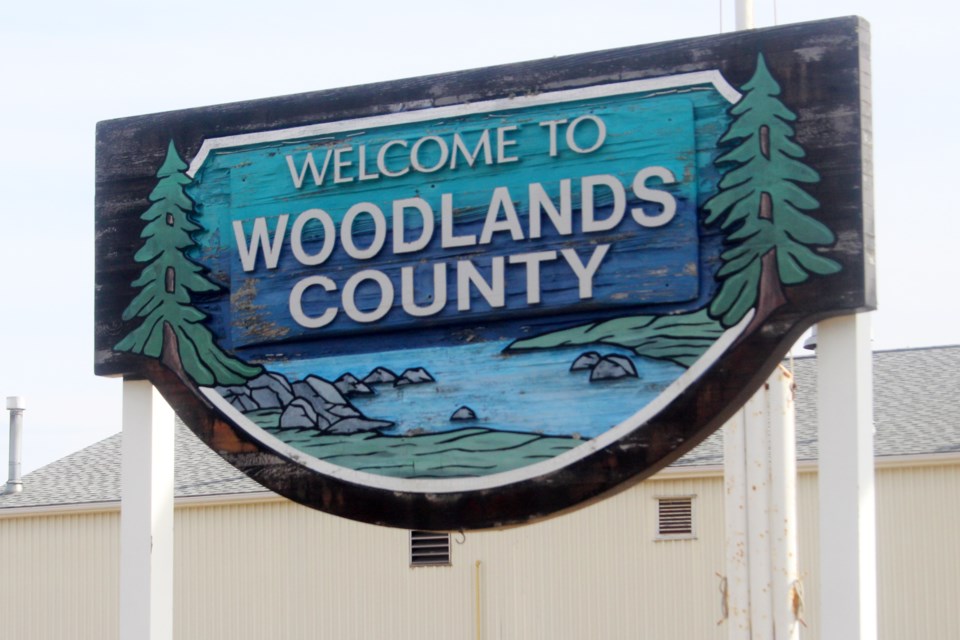BARRHEAD – Woodlands County is increasing its application fees for development permits relating to gravel pits by $3,500 in order to recover the costs associated with processing said applications.
At their Aug. 16 meeting, councillors passed all three readings on a bylaw amending the planning and development schedule of fees, specifically increasing the fee for natural resource extraction from $2,500 to $6,000.
The matter had previously been discussed during the July 12 governance and priorities meeting.
At that time, manager of community and planning services Joan Slootweg said she had canvassed other municipalities about their fees relating to gravel pits and done a rough calculation of what it cost the county to process those applications.
Slootweg said other municipalities had fees ranging from zero dollars in Brazeau County to a high of $100,000 in Strathcona County.
She noted the idea in Brazeau County was to encourage developers to come in and actually apply for the proper permits.
In terms of the costs to the county, Slootweg said processing a recent application for a gravel pit in the Pride Valley area cost around $7,300, but elsewhere it would cost about $5,400.
Coun. Jeremy Wilhelm said he had no issue with bringing the fees up as there was no need for other ratepayers to subsidize these costs. However, he suggested initially that there be two fees charged to gravel pit developers for the Pride Valley area and elsewhere in the county.
Though he understood the reasoning behind the idea, Coun. Alan Deane said he was not in favour of a two-tiered fee and prefered a standardized fee.
However, Deane indicated he was also interested in learning why Lac Ste. Anne County apparently charged $50,000 for natural resource extraction applications.
“Having cost recovery is great because at least we’re not subsidizing the proponent through this process, but perhaps we might want to look at that fee that Lac Ste. Anne has and see what they’re doing with that,” he said.
Upon learning that there would only be one more gravel resource extraction application for the Pride Valley area at the most, Wilhelm agreed that a two-tiered fee made little sense, and suggested they raise the amount to $5,500.
“That covers all of our costs. We’re not making any money off of it, but we’re also not losing any money off of it, and it keeps things nice and simple,” Wilhelm said.
Slootweg herself recommended increasing the fee to $6,000, which would effectively split the difference between the two costs she cited for processing these applications.
Coun. Bruce Prestidge spoke in opposition to any fee increase, which he argued would make it harder for developers looking to establish local pits.
He warned that life would be harder for residents if they couldn’t, say, purchase gravel locally at a decent price in order to put it on their driveways.
“Be careful what you wish for,” he said.
Coun. Devin Williams said he didn’t think it was unreasonable for the county to attempt to recover its costs, while reeve Dave Kusch expressed a concern that the fees may need to increase again in a year’s time.
In the end, councillors passed a motion to forward an amendment to the schedule of fees to the Aug. 16 council meeting after administration had investigated why Lac Ste. Anne County charged $50,000 for natural resource extraction applications. Wilhelm and Prestidge were opposed.
Aug. 16 meeting
During the Aug. 16 meeting, Slootweg reported to council why Lac Ste. Anne County charged $50,000 for their natural resource extraction applications.
After talking to Lac Ste. Anne’s manager, Slootweg said the justification given was the county’s requirements around third-party engineering reviews, the significant amount of time required to go through applications and the high legal fees that have resulted from past appeals of development permits.
She noted Woodlands County and Lac Ste. Anne have different approaches to natural resource extraction, as Woodlands County council had decided that lands for gravel extraction would be amended to direct control.
This method allowed the public to comment ahead of an applications’ approval and effectively eliminated the appeal process for both adjacent landowners and applicants.
As well, she said the majority of Woodlands County’s gravel pits are located on public lands versus private lands, which would trigger a review by the province.



